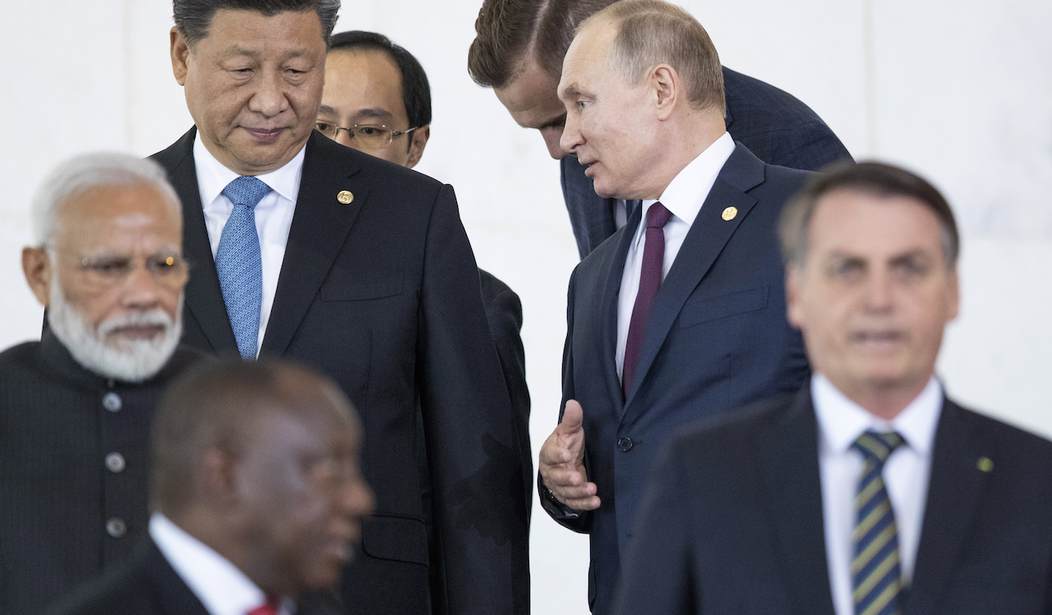We’ve grown accustomed to their lack-of-fortitude face in China. Did anyone think that tech giants Apple and Google would prove any more resilient in Russia? If so, brace yourselves for some all-too-predictable disappointment:
An app built by the allies of jailed Russian opposition leader Alexei Navalny disappeared from Google and Apple stores on Friday as polls opened across the country for parliamentary elections.
The Silicon Valley giants had been threatened with fines from Roskomnadzor, the Russian censorship agency, if the app — which encourages voters to cast ballots against the party of President Vladimir Putin — was not removed, arguing the companies are interfering in the nation’s electoral processes.
Representatives from Apple and Google had been invited to a meeting in the upper house of Russia’s parliament on Thursday, according to reporting from the Associated Press. Afterward, leaders said in a statement that Apple would cooperate with Russian authorities.
Apple went even further, depriving users in Russia the tool to avoid retribution from Putin’s regime for their political activities:
On Friday, Apple also disabled its Private Relay feature in Russia. The feature conceals the user’s IP address and browsing data, offering protection against government surveillance online. It is not available in countries like China, Belarus, Colombia and Saudi Arabia, but had been accessible in Russia until now.
Soooo … let’s get this straight. Apple allows users access to this app everywhere that government surveillance on dissent isn’t an existential threat. Wherever it actually does threaten people, Apple sides with the regime over its users. Do I have that correct, or am I missing something here?
Other regimes are watching American tech giants and getting their measure, the New York Times reports:
The threat to prosecute local employees is an escalation by the Kremlin as it seeks to induce Western tech giants to fall in line with a broader internet crackdown. The country’s internet regulator, Roskomnadzor, has repeatedly demanded that the companies remove certain content, on pain of fines or restrictions on access to their products. The government says that American internet companies are meddling in Russia’s domestic affairs by allowing anti-Kremlin activists to use their platforms freely; Mr. Navalny’s movement was outlawed as extremist this summer.
The Russian government had been increasingly blunt in recent days about its willingness to use threats to prevent the use of the app. “With the participation of Apple and Google, specific crimes are being committed, the scale of which may only increase in the coming days,” Vladimir Dzhabarov, a member of Russia’s upper house of Parliament, said on Thursday. “Individuals contributing to their parent companies’ evasion of responsibility on the territory of the Russian Federation will be punished.” …
Maintaining open, uncensored access to their services, especially in authoritarian countries, is becoming one of the most vexing challenges for American tech companies like Apple, Google, Facebook and Twitter. In countries such as India, Myanmar and Turkey, the authorities are increasingly pressuring the companies to censor certain political speech, or ordering internet outages to block access to the web.
Civil society groups have warned that forcing the companies to conform to a patchwork of laws and regulations risks creating a more fractured internet, where the products and services available to people will depend on where they are.
And increasingly so, too. As Rudyard Kipling once famously observed, paying the danegeld only ensures you will pay it again and again and again.
The stakes in Russia couldn’t be higher, either, as CNN points out:
Voters will choose members of the State Duma — the lower house of the Russian Parliament — as well as several regional and municipal heads.
The ruling United Russia party, which backs President Vladimir Putin, is widely expected to win a majority. And country’s embattled opposition — which has backed tactical voting efforts to chip away at Putin’s monopoly on power — appears to have the slimmest of chances to reverse the country’s slide into authoritarian rule.
Two opposition activists who spoke to CNN allege that Russian authorities have gone to extreme lengths to prevent them from winning office, as part of a concerted attempt to quash electoral competition. …
The latest crackdown on political dissent was signaled when Kremlin critic and opposition politician Alexey Navalny was poisoned with the nerve agent Novichok in Siberia in August 2020. Navalny blames Russian security services for the attempt on his life, which the Russian government has repeatedly denied. The US and European Union largely agree and have sanctioned Russian officials for their involvement.
That is the context for the surrender by Apple and Google. They ended up siding with Putin against the man his security forces attempted to assassinate. Classy.
What was their alternative? Simply put, both companies could have pulled out of the Russia market and blocked access to their platforms from all servers in Russia. They wouldn’t do that in China, but China’s a much larger market and Apple has some of its supply chain in China. Neither really applies to Russia, and the damage to their income would have been less than the damage to their credibility. It would also have sent a belated signal to other would-be dictators that US tech platforms will not be bullied into collaborating with tyrants. That would likely have saved them any further confrontations down the road, or at least made the stakes involved clear. And the sudden lack of access to these platforms would have created enough disruption to further anger the electorate and put pressure on Putin to reform, or at least limit his attacks.
Instead, Apple and Google caved to Putin. Again, that’s no surprise, even if it’s an ongoing disappointment about how little companies that thrived under freedom value it.








Join the conversation as a VIP Member